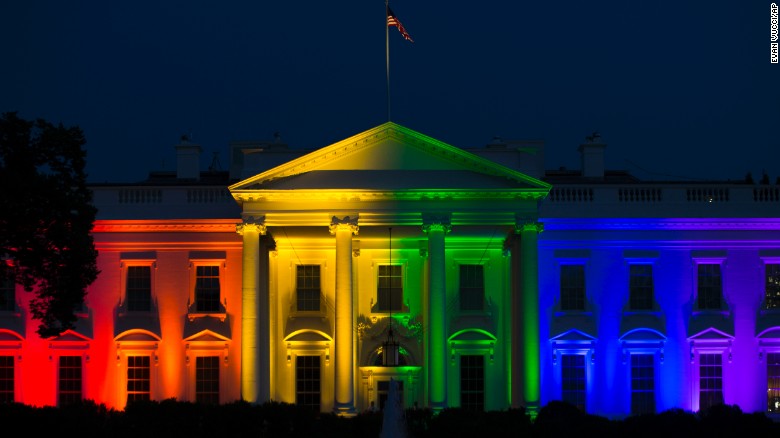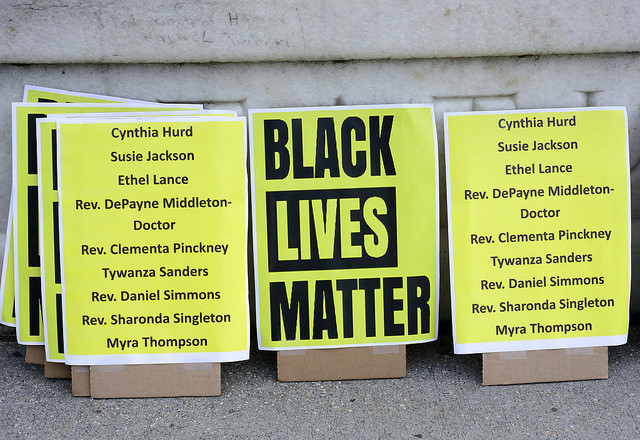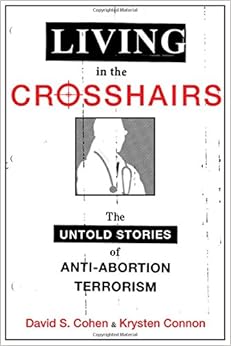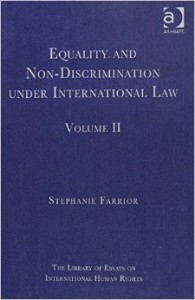The AALS’s 2015 Midyear Meeting Workshop on “Next Generation Issues of Sex, Gender, and the Law” concluded Friday in Orlando. It was one of the best substantive programs I have attended in many years. The quality of the speakers was excellent. The speakers represented a full range of seniorities, schools, geographies and subject-matter specialties.
As a point of information, there were 80 people pre-registered for this conference. (Compare that to 172 people who were pre-registered for the 2011 Workshop on “Women Rethinking Equality” is underway at the Mayflower Renaissance Hotel in Washington, D.C.; see here). Of those 80, 66 (82.50%) were either speakers or members of the planning committee. I’m not sure what accounts for the low attendance compared to 2011, or whether 82.50% of attendees as speakers or organizers is a typical number. (It seems high to me.) It might be that the location was not especially appealing; the time of year was about the same for the 2015 conference versus the 2011 conference.
In any case, it was a fantastic program. The full line-up is here.
One panel I found particularly engaging was a plenary session on reproductive rights. Here is the panel description:
This year marks the 50th anniversary of Griswold v. Connecticut (1965), the landmark privacy decision for reproductive rights. Although the Supreme Court expanded upon Griswold in Roe v. Wade (1973), constitutionally protected reproductive rights have followed an unsteady path since the 1970s. First, the Supreme Court has retreated from Roe’s framework and implications and has allowed significant curtailment of the right to choose in more recent decisions, notably its decision allowing prohibition of many late-term abortions. Second, the pro-life movement has shifted its focus away from demand-side restrictions on reproductive rights and toward newer and more successful supply-side restrictions, such as heightened institutional and professional requirements for abortion clinics. This turn has created large practical problems of access to facilities and professionals who can deliver effective reproductive assistance. Third, the Supreme Court’s decision in Burwell v. Hobby Lobby (2014) creates an indeterminate statutory authorization for “religious” employers to deny health insurance coverage for many contraceptives (so long as the religious employer believes them to be contrary to its religion). This panel of scholars will consider these questions: What reproductive rights are guaranteed by the Constitution, properly understood? What institutions (legislatures, administrators, judges) are best situated to assure those rights? What substantive as well as institutional strategies should be followed by supporters of reproductive choice?
The moderator was Laura Rosenbury (U of Florida). Speakers were Cary Franklin (Texas), Candace Gibson (formerly of the National Latina Institute for Reproductive Rights), Jessie Hill (Case Western), Priscilla Ocen (Loyola LA), Neil Siegel (Duke) and Robin West (Georgetown).
I also heard an excellent paper presentation by Lauren Sudeall Lucas (Georgia State) who talked about her piece, Identity as Proxy, forthcoming in the Columbia Law Review. Here is the abstract.
As presently constructed, equal protection doctrine is an identity-based jurisprudence, meaning that the level of scrutiny applied to an alleged act of discrimination turns on the identity category at issue. In that sense, equal protection relies on identity as a proxy, standing in to signify the types of discrimination we find most troubling.
Equal protection’s current use of identity as proxy leads to a number of problems, including difficulties in defining the category at issue; the tendency to privilege a dominant identity narrative; failure to distinguish among the experiences of subgroups within larger identity categories; and psychological and emotional harm that can result from being forced to identify in a particular way to lay claim to legal protection. Moreover, because the Court’s identity-as-proxy jurisprudence relies on superficial notions of identity to fulfill a substantive commitment to equality, it is more susceptible to co-option or manipulation by majority groups.
This Essay aims to engage readers in a thought experiment, to envision what equal protection doctrine might look like if it were structured to reflect the values identity is intended to serve without explicitly invoking identity categories as a way to delineate permissible and impermissible forms of discrimination. More specifically, it aims to shift from an identity-based jurisprudence that views race and gender as a collection of individual traits to a value-based jurisprudence that views race and gender as the product of structural forces that create and maintain subordination. Under the latter framework, the primary concern is not to eliminate differential treatment, but instead to destabilize status hierarchies and effectively counter subordination. Therefore, rather than asking whether the challenged government action is based on race or gender, one might ask whether it has the effect of perpetuating or exacerbating a history of discrimination or obstructs access to the political process. Unlike the current model, which focuses on defining categories and determining who falls within or outside those categories, the model suggested herein aims to eliminate identity as an intermediary filter and instead apply substantive rationales for heightened scrutiny directly to claims of discrimination.
The clearest impact of such a model would be in the context of affirmative action, where a majority plaintiff could no longer simply claim discrimination on the basis of race. Yet, the potential of a value-based model extends to other contexts as well — for example, challenges to voter identification laws, in which political exclusion would displace discriminatory intent and disparate impact as the relevant measure for analysis, and the treatment of pregnant women, in which discrimination on the basis of pregnancy would no longer have to align with gender to receive heightened scrutiny.
This shift has several advantages: it allows the law to make important distinctions between groups and within groups; it alleviates the need for comparative treatment and solutions that favor taking from all over giving to some; it is less likely to generate identity-based harms; it is fact-driven rather than identity-driven and thus better suited to the judicial function; and it serves an important rhetorical function by changing the nature of rights discourse.
A copy of Professor Lucas’s paper is available for download here.
There were many other great papers and panels — too many to mention.




 David S. Cohen (Drexel) and Krysten Connon (J.D. 2012, Drexel University School of Law) have published
David S. Cohen (Drexel) and Krysten Connon (J.D. 2012, Drexel University School of Law) have published 



 Courtney Joslin (UC Davis) has posted to SSRN her article,
Courtney Joslin (UC Davis) has posted to SSRN her article,  Jamie R. Abrams (Louisville) has posted to SSRN her article,
Jamie R. Abrams (Louisville) has posted to SSRN her article, 